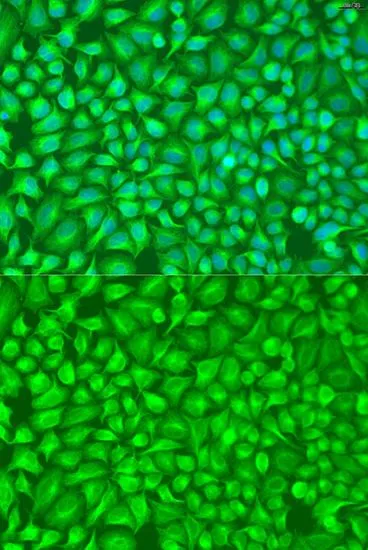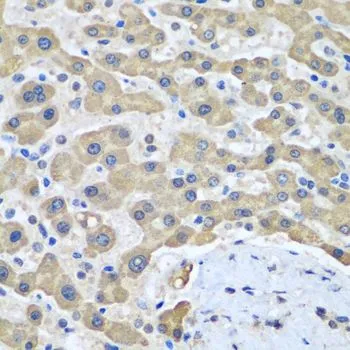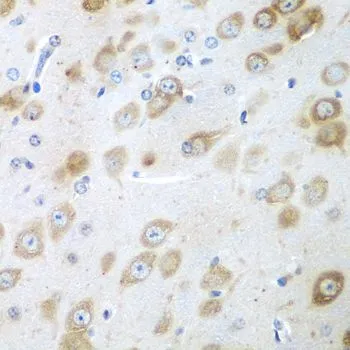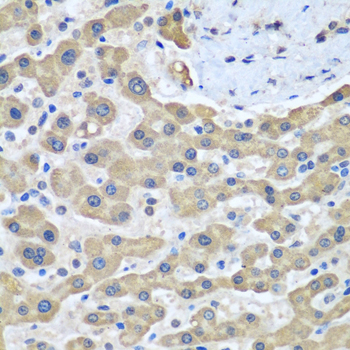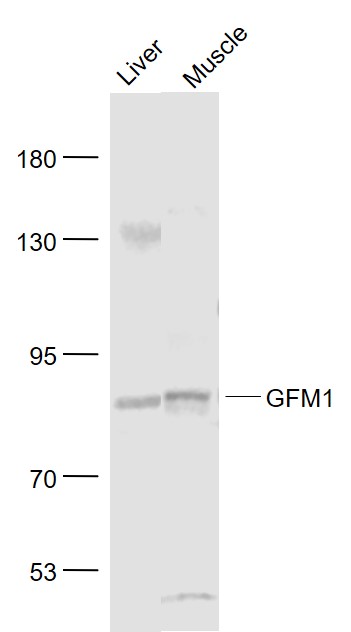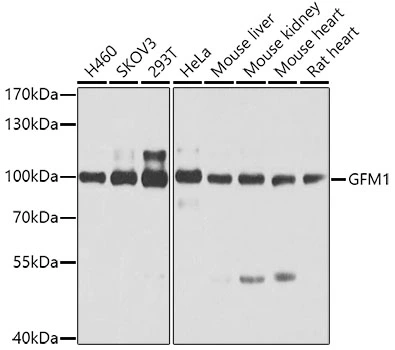
WB analysis of various sample lysates using GTX32625 GFM1 antibody. The signal was developed with ECL plus-Enhanced. Dilution : 1:3000 Loading : 25microg per lane
GFM1 antibody
GTX32625
ApplicationsImmunoFluorescence, Western Blot, ImmunoCytoChemistry, ImmunoHistoChemistry, ImmunoHistoChemistry Paraffin
Product group Antibodies
ReactivityHuman, Mouse, Rat
TargetGFM1
Overview
- SupplierGeneTex
- Product NameGFM1 antibody
- Delivery Days Customer9
- Application Supplier NoteWB: 1:500 - 1:2000. ICC/IF: 1:50 - 1:200. IHC-P: 1:50 - 1:200. *Optimal dilutions/concentrations should be determined by the researcher.Not tested in other applications.
- ApplicationsImmunoFluorescence, Western Blot, ImmunoCytoChemistry, ImmunoHistoChemistry, ImmunoHistoChemistry Paraffin
- CertificationResearch Use Only
- ClonalityPolyclonal
- ConjugateUnconjugated
- Gene ID85476
- Target nameGFM1
- Target descriptionG elongation factor mitochondrial 1
- Target synonymsCOXPD1, EFG, EFG1, EFGM, EGF1, GFM, hEFG1, mtEF-G1, elongation factor G, mitochondrial, G translation elongation factor, mitochondrial, mitochondrial elongation factor G, mitochondrial elongation factor G1
- HostRabbit
- IsotypeIgG
- Protein IDQ96RP9
- Protein NameElongation factor G, mitochondrial
- Scientific DescriptionEukaryotes contain two protein translational systems, one in the cytoplasm and one in the mitochondria. Mitochondrial translation is crucial for maintaining mitochondrial function and mutations in this system lead to a breakdown in the respiratory chain-oxidative phosphorylation system and to impaired maintenance of mitochondrial DNA. This gene encodes one of the mitochondrial translation elongation factors. Its role in the regulation of normal mitochondrial function and in different disease states attributed to mitochondrial dysfunction is not known. [provided by RefSeq, Jul 2008]
- ReactivityHuman, Mouse, Rat
- Storage Instruction-20°C or -80°C,2°C to 8°C
- UNSPSC12352203

